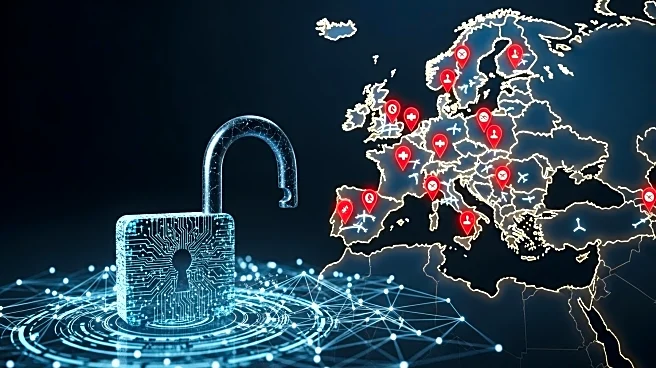What's Happening?
A cyber-attack targeting a third-party software supplier has led to significant flight cancellations and delays at several European airports, including London's Heathrow, Brussels, Berlin, and Dublin. The attack affected the Muse software, used by airlines for passenger check-in, boarding pass validation, and baggage tagging. As a result, some airlines were forced to revert to manual check-in processes, causing widespread disruption. Collins Aerospace, a division of US aerospace and defense giant RTX, confirmed the incident and is working to resolve the outage. Airports have advised passengers to check flight statuses and arrive only if their flights are confirmed.
Why It's Important?
The incident underscores the vulnerability of the aviation industry to cyber-attacks, particularly through third-party platforms that are integral to operations. Such disruptions can lead to significant economic losses and inconvenience for travelers. The attack highlights the need for robust cybersecurity measures and contingency plans within the aviation sector. It also emphasizes the importance of collaboration between airlines, airports, and technology providers to enhance cyber resilience and ensure continuity of operations even when digital systems are compromised.
What's Next?
Airports and airlines are likely to review and strengthen their cybersecurity protocols to prevent future incidents. This may include increased investment in security technologies, regular software updates, and improved incident response strategies. Additionally, there may be a push for better information-sharing practices between governments and industry stakeholders to facilitate quicker responses to cyber threats. The aviation industry might also explore alternative systems and manual processes to mitigate the impact of similar attacks in the future.
Beyond the Headlines
The attack raises questions about the reliance on digital systems in critical infrastructure and the potential risks associated with third-party software. It highlights the need for a balanced approach that includes both technological solutions and human preparedness to handle disruptions. The incident may prompt discussions on regulatory measures to ensure cybersecurity standards are met across the aviation industry.









